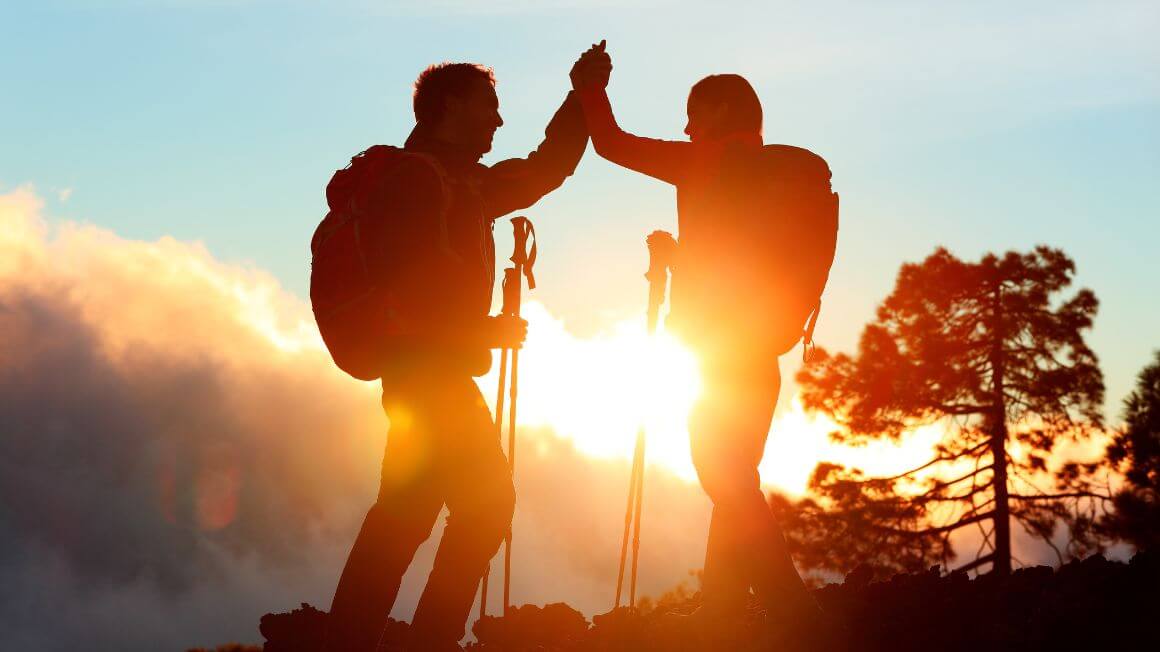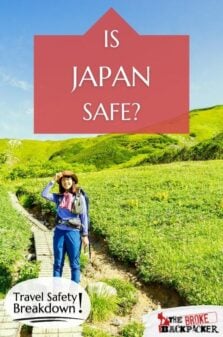The land of cherry blossoms and Shinto shrines, clean cities and video-games, Japan is a cultural force to be reckoned with.
Japan is as much a cultural epicenter as it is one for natural disasters. From frequent earthquakes to notorious tsunamis and a shockingly high number of nuclear power plants, there are things that certainly raise a few eyebrows in Japan. So, you may ask, “Is Japan safe?”
It is a valid question and the reason we have created this truly epic insider’s guide into staying safe in Japan. I believe that everybody should be able to travel smart anywhere in the world, even “safe” countries, and so I’m here to help.
I am going to be covering a whole lot of ground in my handy guide. I mean it. That means just about everything from the safety of public transport in Japan, to what to do in case a rogue bear attacks, and whether it’s even safe to drive in Japan. I’ll definitely cover whatever your concern is.
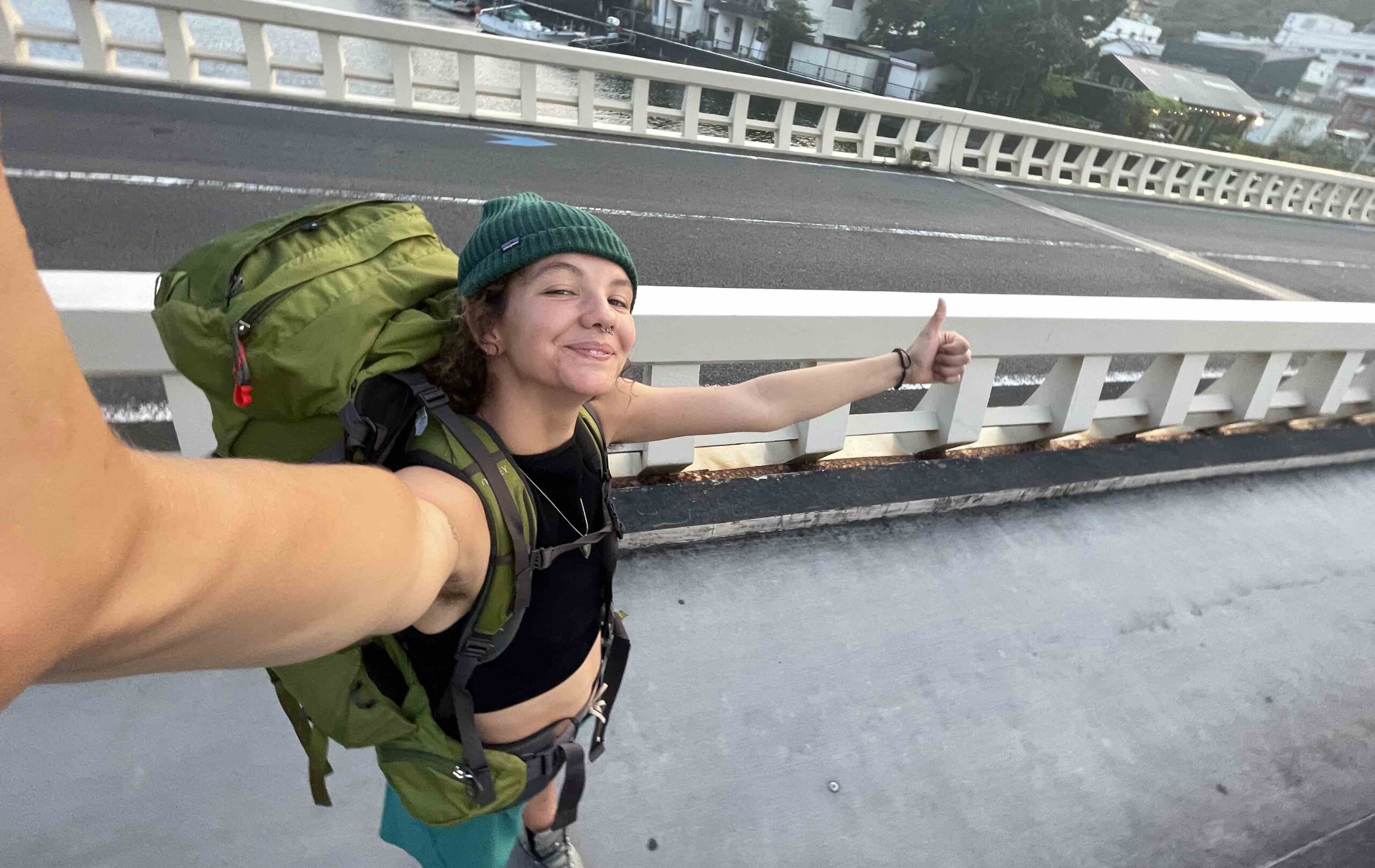
Photo: @audyscala
The Broke Backpacker is supported by you. Clicking through our links may earn us a small affiliate commission, and that's what allows us to keep producing free content 🙂 Learn more.

Unlock Our GREATEST Travel Secrets!
Sign up for our newsletter and get the best travel tips delivered right to your inbox.
How Safe is Japan? (Our take)
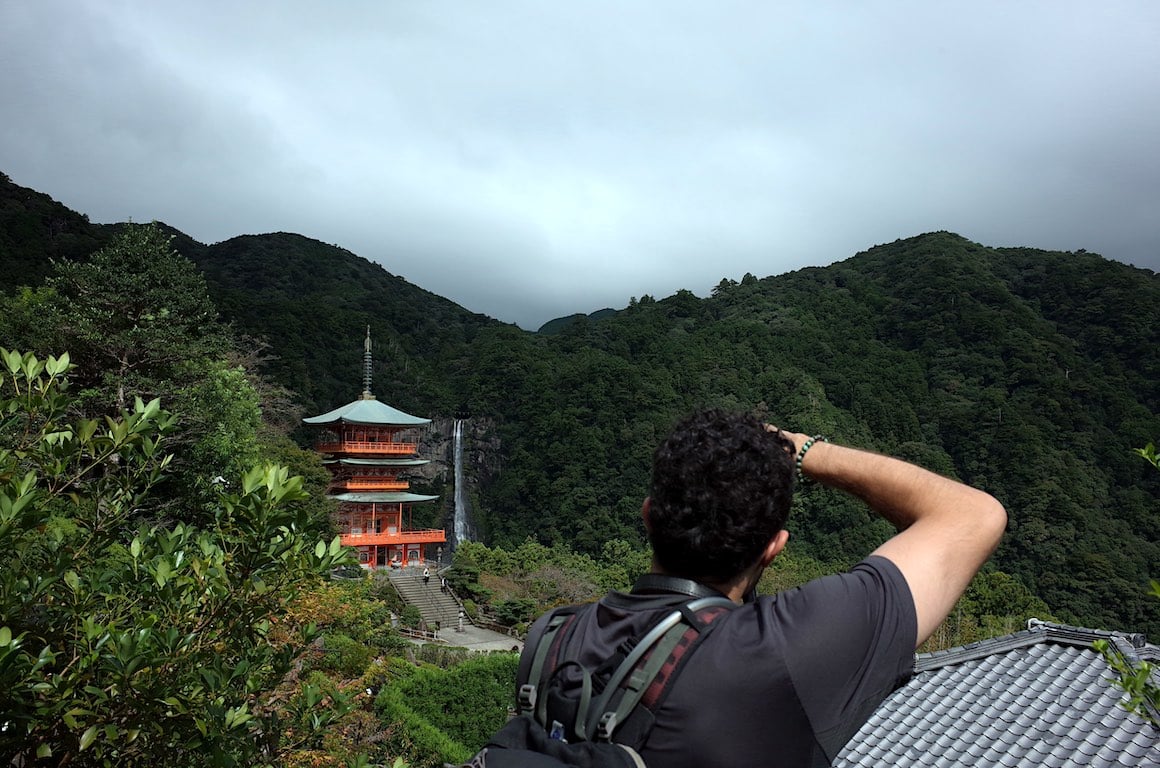
Photo: @audyscala
Travel to Japan is amazing if you want a unique destination to explore. A literal wealth of culture awaits you in this incredible country. Not only that: ancient paths to hike, tropical seas to bathe in, and mountains to ski. Japan has it all.
But all this natural beauty comes at a price. Natural disasters are a frequent occurrence in Japan.
We’re talking earthquakes – a lot. With earthquakes comes the threat of tsunamis. These can be devastating.
Heavy rains can bring flooding and landslides. Oh and typhoons as well, which can pretty brutal.
That, however, is just the mandatory disclaimer. Travel in Japan is unbelievably safe. Crime is low at the best of times and almost non-existent for a foreigner.
Even in regards to the natural disasters, though devastating, Japan is such a highly-developed country with such advanced infrastructure that the statistical likelihood of losing your life on a two-week holiday in Japan is very unlikely.
Aside from seismic activity… The fact remains that Japan really is one of the safest countries in the world. However, It’s always wise to be prepared for the unexpected. Investing in a reliable travel insurance ensures you can explore with peace of mind.
Oh, you’ll also want to get hold of a specific Japan travel adapter to make sure all your devices charge safely too.
There is no such thing as a perfect safety guide, and this article is no different. The question of “Is Japan Safe?” will ALWAYS have a different answer depending on the parties involved. But this article is written for savvy travellers from the perspective of savvy travellers.
The information present in this safety guide was accurate at the time of writing, however, the world is a changeable place, now more than ever. Between the pandemic, ever-worsening cultural division, and a click-hungry media, it can be hard to maintain what is truth and what is sensationalism.
Here, you will find safety knowledge and advice for travelling Japan. It won’t be down to the wire cutting edge info on the most current events, but it is layered in the expertise of veteran travellers. If you use our guide, do your own research, and practise common sense, you will have a safe trip to Japan.
If you see any outdated information in this guide, we would really appreciate it if you could reach out in the comments below. We strive to provide the most relevant travel information on the web and always appreciate input from our readers (nicely, please!). Otherwise, thanks for your ear and stay safe!
It’s a wild world out there. But it’s pretty damn special too. 🙂
Is Japan Safe to Visit Right Now?
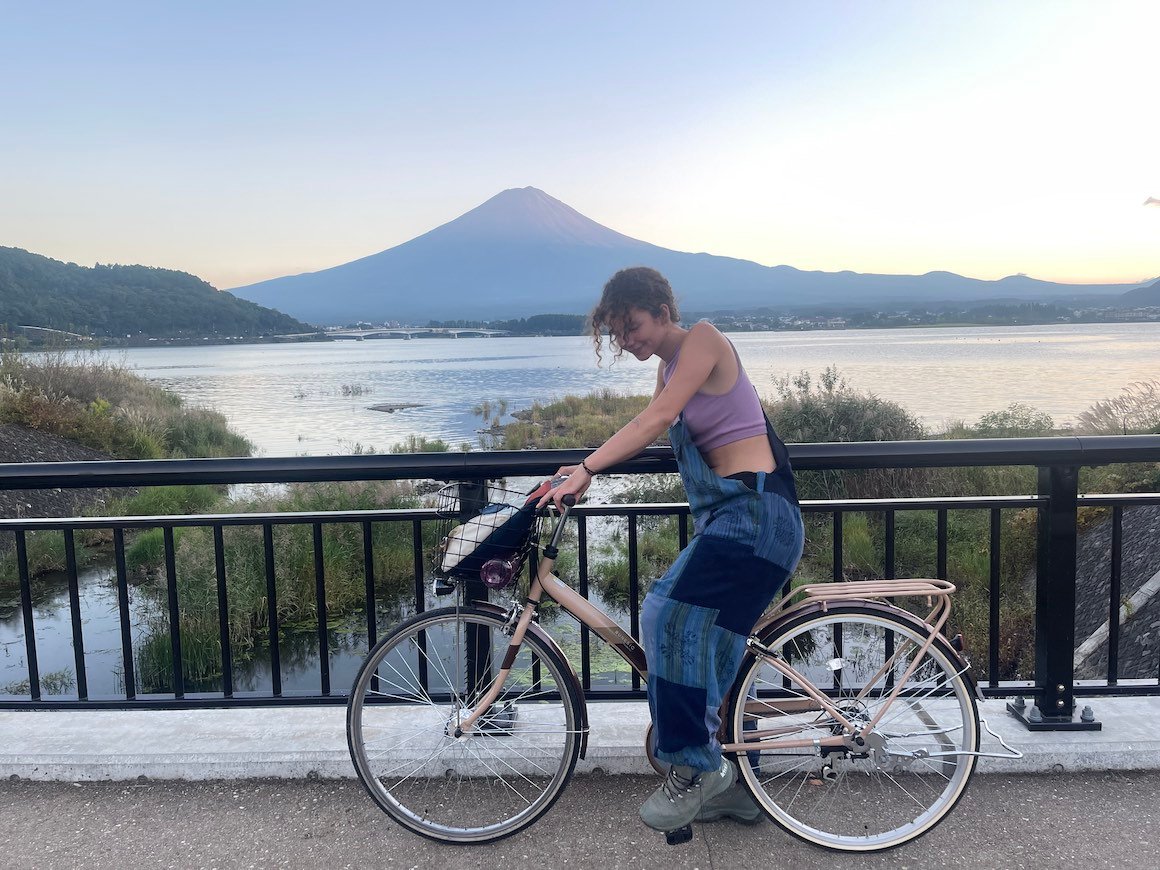
Absolutely, Japan is safe to visit – without a doubt.
And, naturally, a whole LOAD of people enjoy their majestic safe travels to Japan. There were over 28 million visitors to Japan each year. For 99.9% of all statistical normies, Japan is safe.
When we talk about anything outside of ‘acts of God’, Japan is ridiculously safe to visit. Ridiculously! Leave your bag in a restaurant and walk around at night alone. It’s pretty much all good. No hassle. You’ll even see young children travelling home by themselves on trains.
It’s so safe that often Japanese people are just… asleep on trains. You’ll see that a lot. It’s a sign that people have nothing to worry about – at least in terms of safety.
The Global Peace Index (2021) ranked Japan 12th out of 163 countries. That’s just below Singapore. But honestly? We’d say that it’s safer than a lot of the countries ranked above it.
Want to save money on your trip?
We got you. For reals.
Safest Places in Japan
Pretty much all of Japan is safe. That being said, choosing the right area to stay in Japan can make or break your trip. To help you out, we’ve listed our favorite ones below:
Kyoto
Kyoto is the historical and cultural center of Japan, it is where you will find most of the most famous sites in all of Japan. A trip to Japan isn’t complete without wandering around the famous sites of Kyoto and checking these fabulous sites off your bucket list. Luckily, Kyoto has epic hostels too so you can stay here on the cheap!
We’ve said it many times before, but since Japan is pretty much safe anywhere, you can expect plenty of security and safety in Kyoto as well.
It’s best to rent a bicycle when visiting the city so you can easily get to all the sites but public transportation is also amazing. Make sure you spend quality time at the Arashiyama Bamboo Forest and at the lovely gardens at the Okochi Sanso. Those are located in the West part of the city in the Arashiyama district.
Tokyo
Of course, we can’t forget about Tokyo! The city where you can do absolutely anything and everything. Tokyo is home to restaurants where you can dance with cyborgs or you can hang out with animals at pet cafes. You can also ride in a real-life Mario Kart in Akihabara! Take the Tokyo streets by storm in this real-world Mario Kart experience. You even get to dress up as the characters, as they do provide costumes.
Tokyo has it all. There are so many different districts to visit that it can feel overwhelming. You can walk around Giza for upscale shopping and incredible sushi or you can visit Asakusa to get a hefty dose of history and culture. Nakameguro is the hipster neighborhood, and Akihabara is where all the anime and gaming happens.
And the best thing about it, all these neighborhoods are safe! Including the cheapest of Tokyo’s hostels.
Kamakura
Kamakura is a lovely coastal town that has an abundance of gardens and temples. It’s also home to the Great Buddha, Daibutsu. This seaside Japanese city is actually just a bit south of Tokyo. You can do it as a day trip from Tokyo but it’s better to spend some quality time there to soak up the peaceful vibes and to save some bucks!
What we love about Kamakura the most, besides the opportunity to save some dough, is the dozens of Buddhist Zen temples and Shinto shrines that are so incredibly tranquil. Also, if you were in need of a little adrenaline rush, Yuigahama Beach is a fun place to go surfing. Even if you just needed some time relaxing on the sand, Yuigahama Beach is the place to do it.
Places to avoid in Japan
To be honest, there aren’t any dangerous places in Japan. Certainly not in the city. If you’re hiking or going more towards the countryside, simple common sense should keep you perfectly safe.
Just as an overall warning though: Avoid any areas that seem sketchy. That includes dark side streets and areas without any tourists. If it doesn’t look welcoming, stay away! And of course, just stay aware of your surroundings at all times.
Chances are, you’ll have absolutely no issue in Japan. Even looking for trouble can be a bit of a mission, that’s how safe it is.
Japan Travel Insurance
ALWAYS sort out your backpacker insurance before your trip. There’s plenty to choose from in that department, but a good place to start is Safety Wing.
They offer month-to-month payments, no lock-in contracts, and require absolutely no itineraries: that’s the exact kind of insurance long-term travellers and digital nomads need.
SafetyWing is cheap, easy, and admin-free: just sign up lickety-split so you can get back to it!
Click the button below to learn more about SafetyWing’s setup or read our insider review for the full tasty scoop.
Seriously: Japan is super safe! No matter where in Japan you stay, you will feel secure. Like, there’s so much about this country that makes it so stress-free to travel around.
Japanese people are incredibly kind to foreigners and also quite shy; it’s rare to ever feel like a Japanese person is intruding on your personal space. You won’t really have to worry about crime in Japan.
It still does exist, however. And alongside what little crime there is, the natural world can be a scary place in Japan. Make sure you read on our safety tips for travelers.
- Be sensible – Even though Japan is safe, you might want to avoid areas that seem sketchy. Things can still happen.
- Stay prepared – Like you would in any other country. Don’t let your guard down completely because Japan is usually safe. Taking precautions like separating your money in different caches (like in a money belt) keeps you from getting screwed by petty crime or just being forgetful.
- Take care in ‘seedy’ areas – Bar areas in the Tokyo areas of Kabukicho and Roppongi, for example, are known for scams, drink spiking, and sexual assault.
- Don’t do drugs – It’s very illegal in Japan. And hard to get. Unless you have good local friends, you may find yourself inadvertently bartering with the Yakuza.
- Don’t follow touts to bars – Most likely you’ll be led to the sort of place we warned against in the last tip. At the very least, you may be regretful surprised by an enormous cover charge.
- Tattoos are iffy – Although it’s becoming more accepted, tattoos have traditionally been stigmatized in Japan due to their connection with the Yakuza. However, the foreigner card, as always, is always the ultimate trump card. You’ll have no issues 90% of places (including onsen).
- Watch out crossing railway lines – You’ll have to cross lines in towns and cities. Make sure you aren’t caught between the barriers. It’s hard to miss the wailing Anime-girl alarm though.
- Learn some Japanese – Numbers, greetings, please, and thank yous are lapped up by the locals.
- Get a translation app – Google Translate can be a lifesaver.
- And use Google Maps for trains – There are also some apps purpose-built for Japan’s public transport system.
- Be respectful – Especially to older people. Bowing is where it’s at. And take your shoes off if you’re going in someone’s house.
- Don’t get carried away in public – The Japanese traditionally maintain a reserved nature in public. That said, when the gloves come off and it’s party time, the socially-normative inhibitions go right out the window.
- Avoid rush hour – Especially if you’re taking the train. Is rush hour dangerous in Japan? No… Is it worth it…?
- Prepare for the weather – Winters are cold and the summers are hot. A winter travelling in Hokkaido really isn’t all that far from Russia after all.
- Watch out for bears when hiking – Noise – be it loud stomps, a speaker, or a anti-bear bell, are all strong recommendations.
- And watch where you step – Snakes are worth worrying about. A bite from the major type, mamushi, typically results in hospitalization.
- Stick to marked trails when hiking – Same as you’d do anywhere. Going ‘off-piste’ can lead to getting lost, injury, or worse.
- Know what to do in the event of an earthquake – REALLY important. Download an earthquake app and keep an eye on the news.
- Watch out for the weather – When typhoons hit they can be STRONG. It’s key to stay inside.
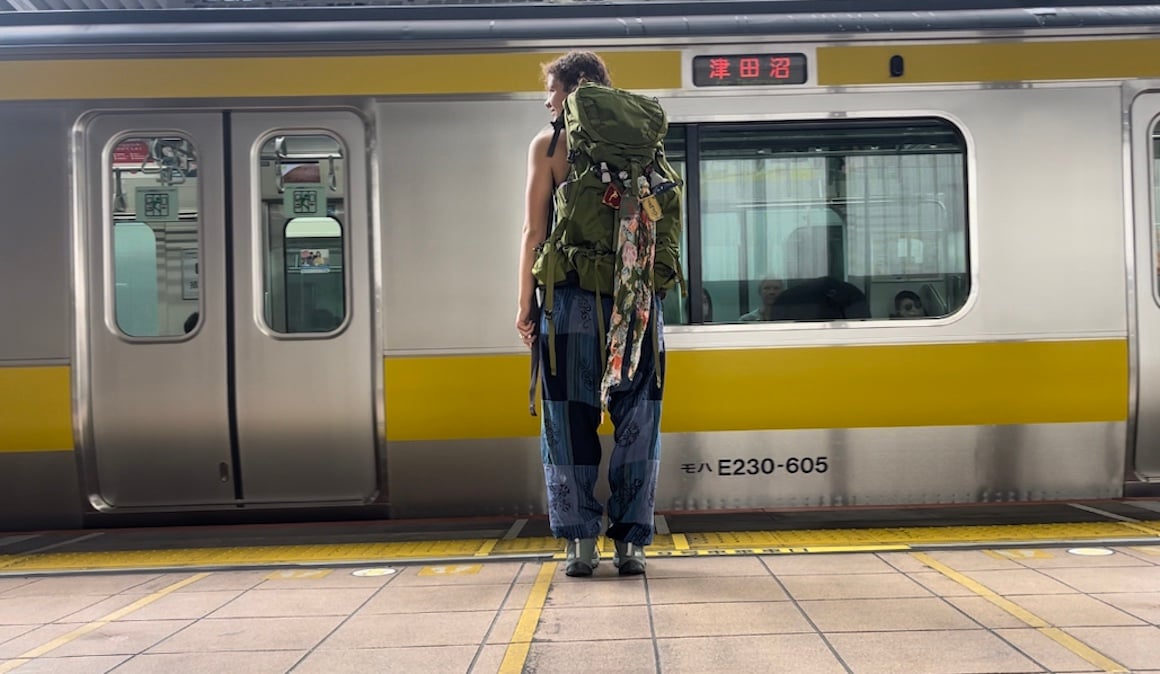
Photo: @audyscala
Japan is one of the safest countries in the world, so it goes without saying that it’s going to be very safe for solo travelers too. It’s a safe, solo-friendly place.
You’re going to be able to wander around at night feeling like you’re the last person on Earth. Still, it pays to be knowledgeable, so here are a few solo travel tips for Japan.
- Know when to call it quits when it comes to drinking. Booze is everywhere, and it’s cheap. Be especially careful in touristy bars, where drink spiking can happen.
- Make sure you can get home at night. It’s easy to lose track of time when you’re out and about. Missing the last train in a city means walking, which is long, or getting a taxi, which is expensive in Japan.
- When you’re out hiking, know your limits. The climbs here can be steep and relentless. Do your research and plan ahead. Plenty of people have hiked all over Japan and written extensively about the experience – often complete with photos of the route.
- Meet up with other people. Japan can be a lonely experience and sometimes spotting another backpacker feels like finding a unicorn. The best way to stay connected is to be social and meet people.
- Don’t be afraid to eat out or even drink by yourself in Japan. This is totally normal. It’s a standard post-work de-stressor in Japan (usually coupled with several drinks).
- Keep in touch with people. Your family and friends back home will most likely think you’re doing something pretty cool, so don’t leave them in the dark and go off-the-grid completely.
- Take a tour! A walking tour, a whiskey tour… anything! This will open up the country a little more – since many things you go to see won’t be adequately explained in English. It’s a good way to learn and meet other travelers.
- Figure out a route from the train station, or bus stop, to your hotel ahead of time. If you need WiFi, head to a konbini (convenience store) like 7-11 or Lawson to connect.
- With that in mind, think about picking up a data sim at the airport. Japan’s WiFi sitch is pretty good but there are always times when it’s not around and you really need to check or translate something.
- Book accommodation and bullet train tickets in advance. This isn’t a country where you can just rock up and make a reservation. You will have to book before you arrive so plan ahead.
- Don’t be afraid to ask for help if you need it. People will literally draw a map on a napkin for you if you’re lost and write down the connections you need to make if you’re not sure about the train.
Is Japan Safe for Solo Female Travellers?
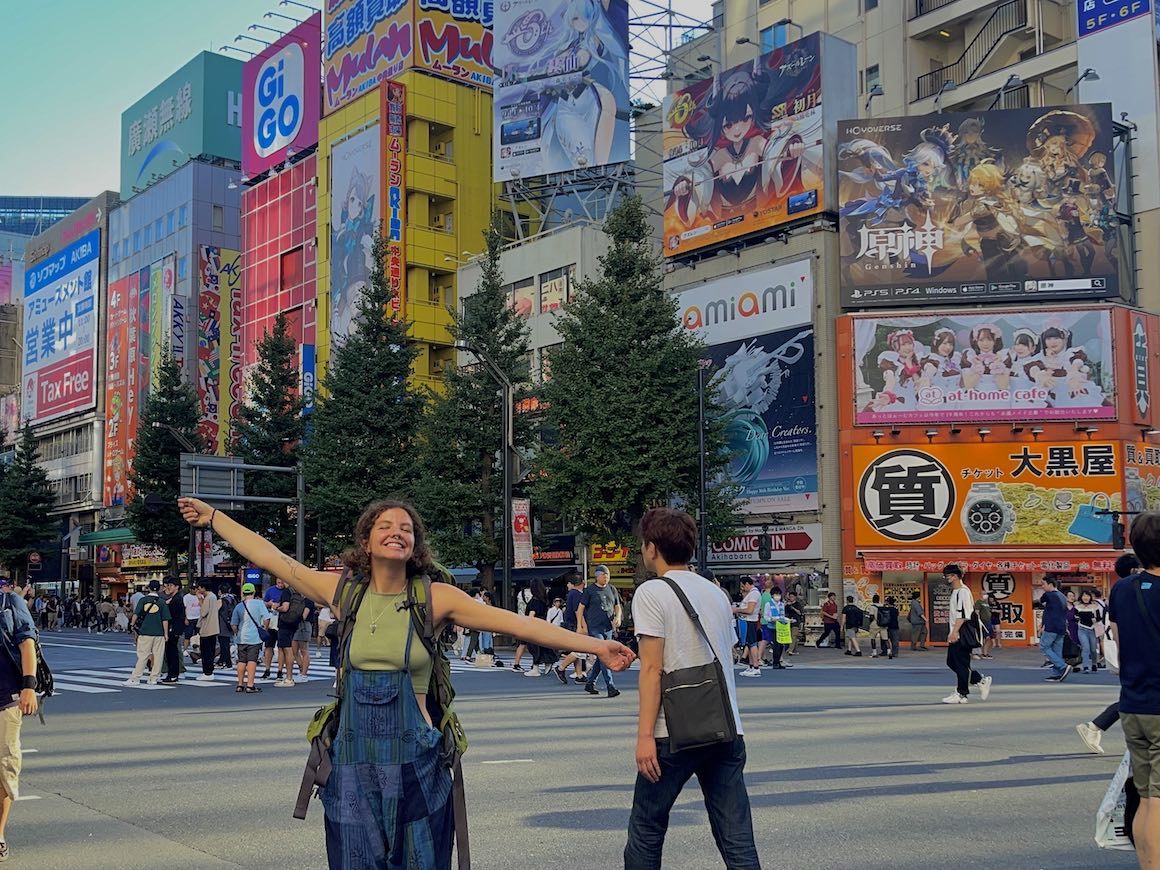
Photo: @audyscala
Japan, being Japan, is most definitely safe to visit for female travelers. Being a woman anywhere in the world comes with its own risks, and that applies to Japan too.
Women in Japan have traditional roles, but it’s changing. In fact, single women are very free in Japan, but they aren’t always totally safe. Japan has earned an unfortunate reputation (with grounds) for having an issue with perverts and gropers (among worse things), particularly on some public transport. While this is an ongoing historical social issue in Japan, it’s extremely rare for this to reach a foreigner.
Here are some travel safety tips for the women going to Japan!
- Dress appropriately and try to blend in. You’re not going to get catcalls, but revealing your midriff or having cleavage on show is going to make you stand out.
- Japan has women-only carriages on many of its urban train networks. There’s a name for the onboard gropers – chikan – and historically it has been a common occurrence on public transport in cities, mainly during rush hours. As a tourist, particularly if you avoid peak hours and use the women’s carriage, you’ll be fine.
- Know that if someone is bothering you, physically or being weird, make a scene! Yell, shout, and tell another passenger to call the police. This will definitely spook the harasser.
- With that in mind, stay in a hostel with good reviews and female-only dorms. Not only will you get a better night’s sleep, but sometimes mixed dorms can be a bit overwhelming.
- And on that note, find yourself some travel buddies! Japan can be a lonely experience.
- Don’t be scared to try an onsen. These are traditional public baths, often using naturally hot mineral water… but everyone’s naked. The baths are gender-segregated, and it’s an amazing experience. All sorts of women, from teenagers to older ladies, and even mothers with babies, come in to use the baths, relax and socialize. You might even get chatting to someone yourself! Oh, the whole naked thing? No one cares!
More on Safety in Japan
We’ve covered the main safety concerns already, but there are a few more things to know. Read on for more detailed information on how to have a safe trip to Japan.
Is Japan safe to travel for families?
Being as developed as it is, Japan is actually an amazing place to travel with children.
And if your children are videogame or anime fans, they’re going to absolutely love it! We’re talking everything from the Pokemon Centre to arcades galore.
When it comes to history… there’s Kyoto with all its ancient temples. You can feed the deer in amongst the shrines of Nara. You can visit actual former samurai residences in Kakunodate.
And then there are the many museums and theme parks of Osaka and Tokyo.
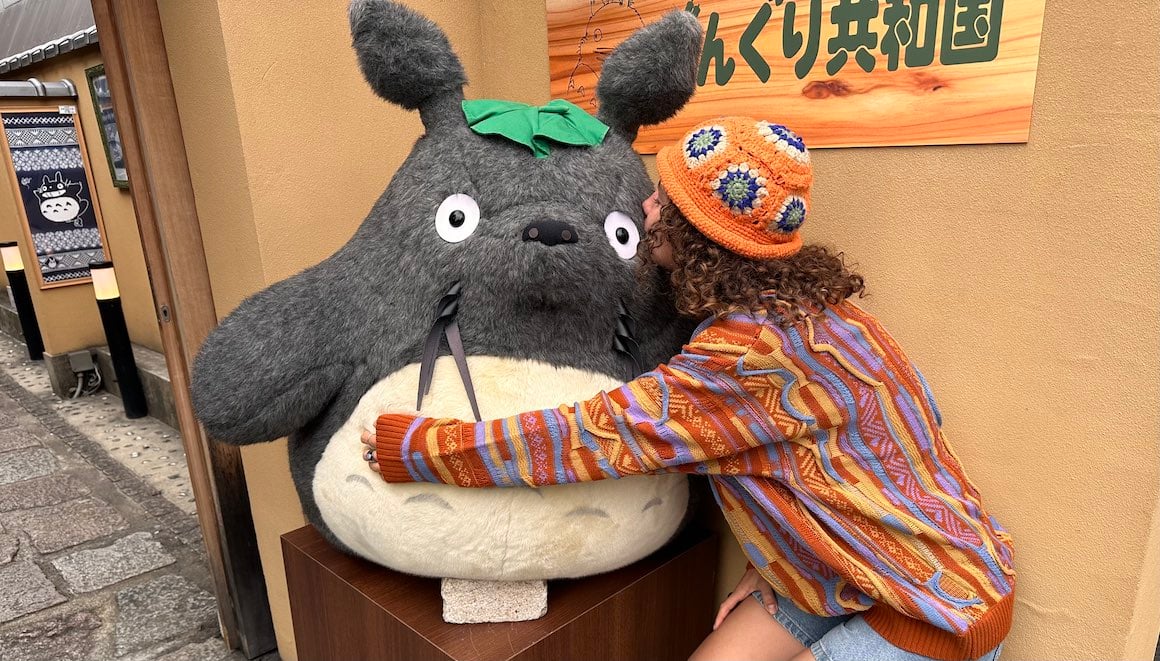
Photo: @audyscala
In February there are the beautiful tiny igloos of the Kamakura Festival, the ice festival of Sapporo and Asahikawa, and skiing.
Japan is a fantastic (and safe) holiday destination for families. There’s so much to do!
Everything in Japan is very easy to do with children. It’s one of the safest places for traveling families to take their children. You’ll often see them walking around by themselves, playing in parks, and taking themselves to and from school.
You can even bring SMALL children to Japan. Easily. Baby changing facilities and public toilets are pretty much everywhere. Things like this are well catered for in Japan.
Japanese Hostels actually often have the option to hire out a whole dorm. So you could get yourself a four-bed hostel dorm with its own bathroom.
But at the end of the day, Japan is safe for families to travel. 100%.
Is it safe to drive in Japan? Getting around Japan.
Yes, it sure is.
And there are some superb road trips to be had too (Japan is for the motorbike lovers). There are lovely little coastal routes, around the Kii Peninsula for example, drives through the mountains, and endless backroads that weave through villages and towns.
There’s parking everywhere, though it can be pricey. Nobody drives crazy or too fast except for the odd tosser. The Japanese are some of the safest and most patient drivers on the planet. They also drive on the left which is great news for the Commonwealthers.
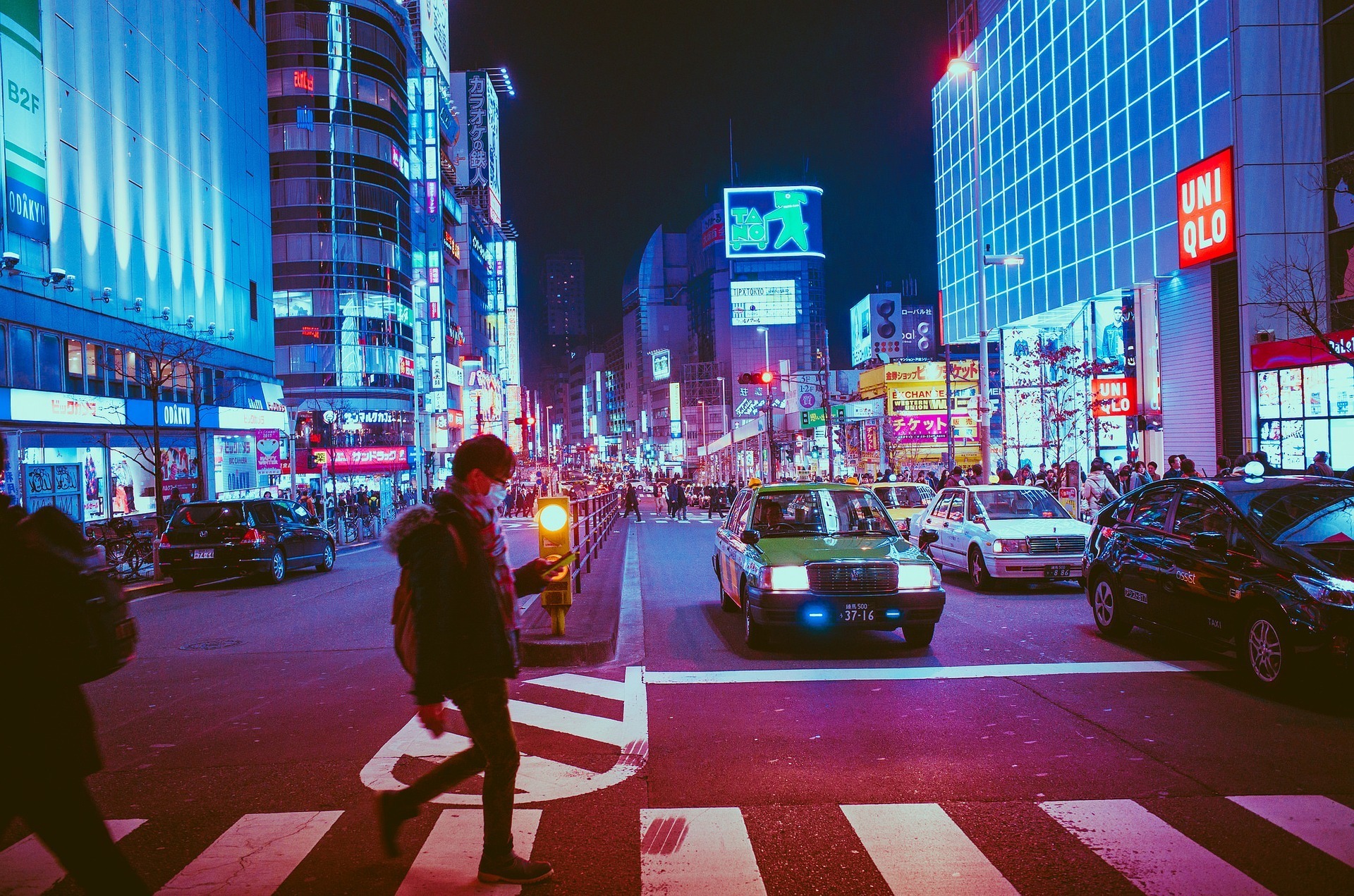
City driving can be hazardous. Pedestrians are one hazard: if it’s green for you to turn left at a junction, it’s often also green for pedestrians to cross. Why? No idea but that’s how it is! Be careful!
You might want to learn some Japanese road signs. A few basic signs doesn’t mean actually reading Japanese, just recognizing the characters.
Basically, it’s like driving in any developed country. It ranks very low in terms of deaths due to road traffic accidents – in the top ten safest countries for driving, in fact, along with Iceland, the UK, and others.
So, yes. It’s certainly safe to drive in Japan – with an international driver’s permit.
Is Uber safe in Japan?
Definitely. Uber is safe in Japan.
But, for some reason, it’s more expensive than taxis.
That might be because Uber is more convenient than a taxi. So you pay for the privilege. That might not be it, though. Either way: it is pretty pricey.
All the usual perks of Uber apply here. That’s everything from being able to see in advance who your driver is, all the way to being able to not have to use any Japanese to book a car. Get a Japanese SIM card to use this while you’re out and about.
Are taxis safe in Japan?
Unlike in other countries, where you have to negotiate with drivers, worry about drivers not turning the meter on or driving too fast, or other odd stuff happening in the car – taxis are totally safe in Japan.
There’s this stereotype that Japanese taxis are ultra-clean. That’s NOT a myth: they really, really are.
Quality will still vary between companies and locations (eg. rural towns vs. cities). There are many different companies, and taxis are generally more likely to be super-swish in major cities than in tiny fishing villages.
Taxi prices are indicated on Google Maps. You can even order through this, via JapanTaxi, or DiDi. They tell you the wait time and the fare.
English-speaking taxi drivers aren’t widespread. You might want to learn some basics in case but chances are Google Translate will suffice.
That said, taxis are super expensive. We’re talking more expensive than London prices. Very steep.
Is public transportation in Japan safe?
Japan is famous for its punctual public transport. (And a billion other things – do they do everything perfect here?) The trains are well known for being on time, all the time.
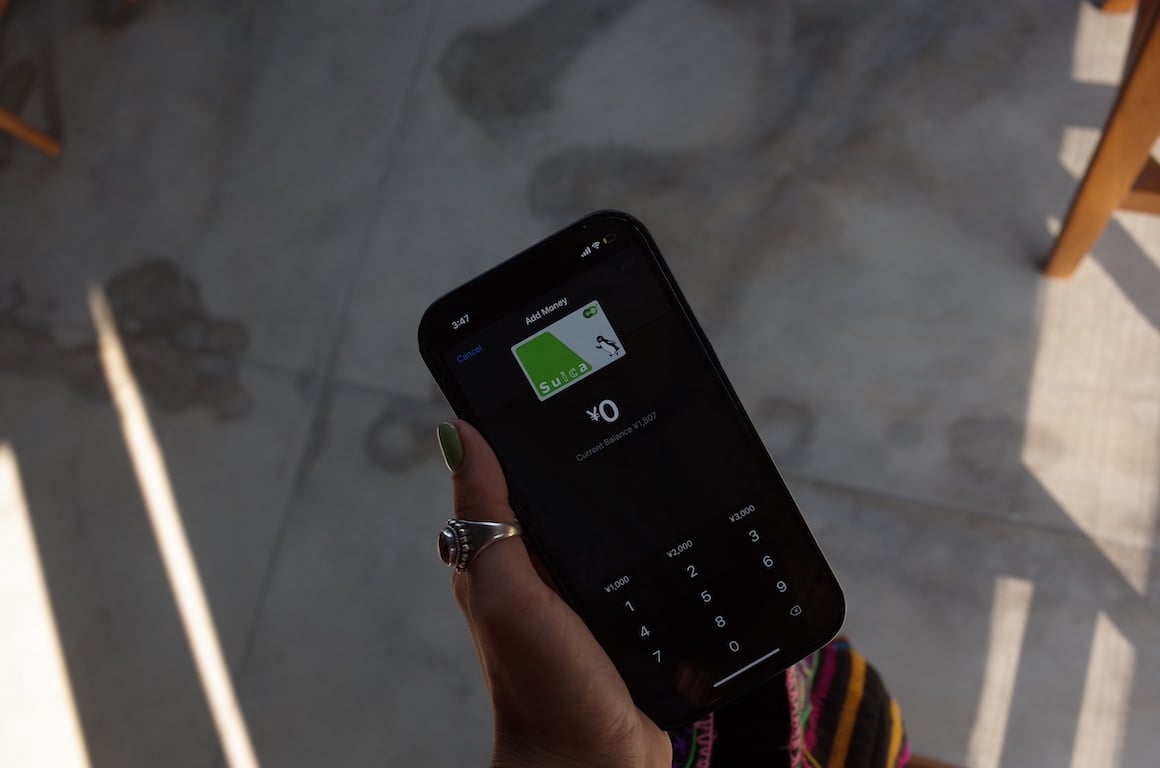
Photo: @audyscala
Getting Around the Cities
Each city will have some level of a train or metro system. Whether that’s a few stations crossing a small city, or an entire metro system like connecting the larger metropolises of Tokyo, Osaka, Nagoya, and Fukuoka. It’s VERY comprehensive.
And whilst public transport in Japan is safe, there is one thing to worry about: chikan. This is basically sexual assault, from inappropriate touching to groping, on women. Though it nearly always usually only a concern for local women, it’s not ok.
Other than metro systems, some cities have a tram network. Cities like Hiroshima and Hakodate are examples. Tokyo even has a couple of lines. This, too, is safe.
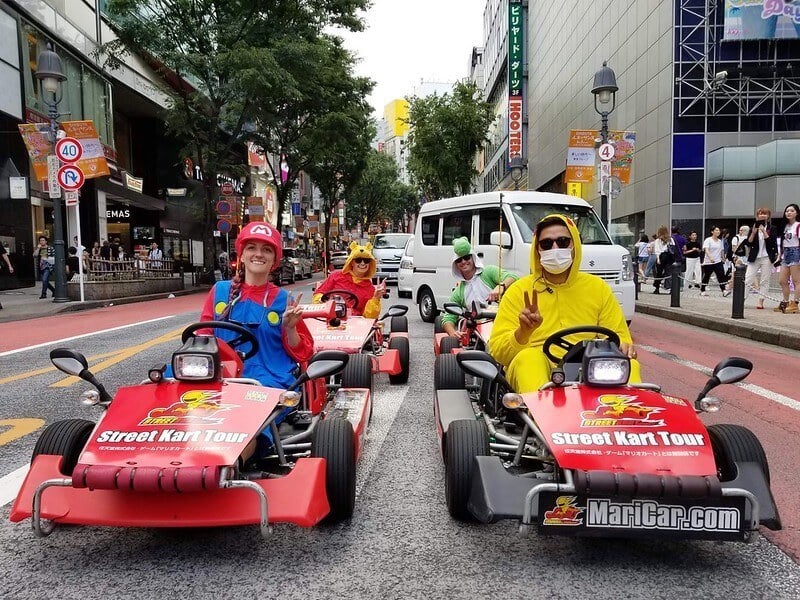
Photo: Liz Mc (Flickr)
Cities, towns and villages have bus systems which are also safe, efficient, and easy to use. In more rural areas everything will be in Japanese. In cities, it’s usually a mix of Japanese and English. Anything in between depends on how well-trodden it is by English-speaking tourists.
All in all, if you get confused, there’ll always be a friendly Japanese person around to help. Getting around Japan’s cities is safe and easy.
Getting Around Japan
Then there’s getting around the country itself. The rail system is amazing! Local trains here go into almost every single nook and cranny of Japan.
It can be confusing, though: these are often a mix of private lines, Japan Rail lines, and a whole load of different trains from local to reserved and un-reserved limited or semi-limited expresses. Yep. More confusion.
Use Hyperdia to find the cheapest and easiest train routes.
There’s also the famous shinkansen or bullet train. This is super fast, super clean, super nice… and super expensive! (Seeing a trend here? A trip to Japan can cost quite a bit if you’re not smart.)
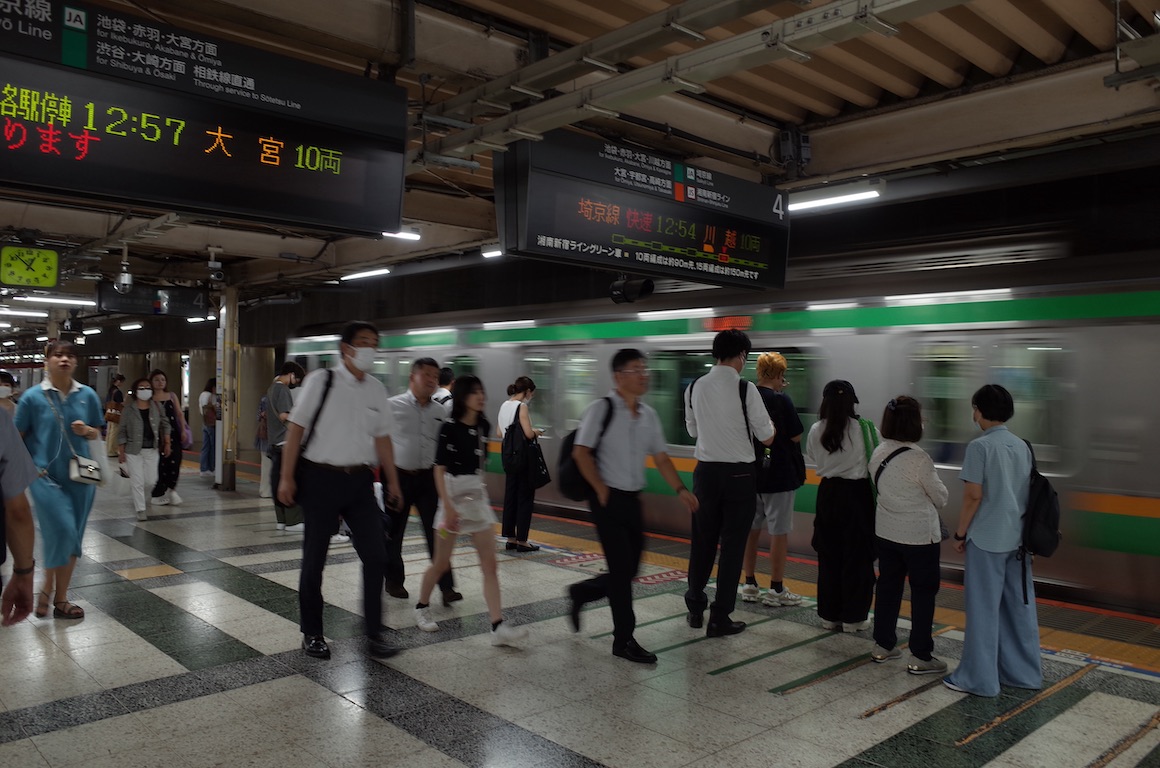
Photo: @audyscala
The cheapest way to get around is by highway buses. These ply Japan’s roads cheaper than the price you’d pay via rail. Best of all: no having to change at random train stations.
Even cheaper are night buses. These vary in quality: some companies are amazing, come with toilets, WiFi, and footrests while others may just have a reclining seat. But these are the cheapest way to travel between Japan’s major cities. Night buses in Japan are (of course) safe, too.
Put simply, public transport in Japan is amazing. Like most things about the whole damn country.
Is the food in Japan safe?
Japanese food is really safe and really tasty. That’s about it. The only times you may come up against anything unsafe is if you have an allergy to seafood. There’s a lot of seafood in Japan.
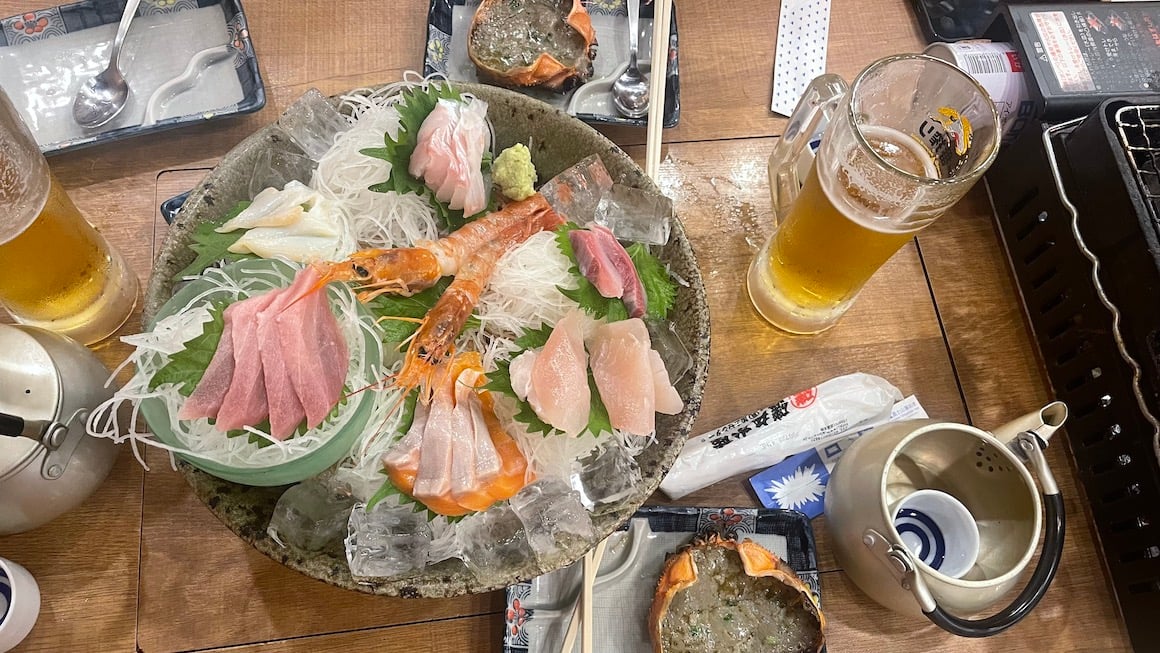
Photo: @audyscala
But whilst hygiene conditions are meticulous, there are still things you can do to ensure that you stay as healthy and as safe as possible when you’re eating your way around Japan. So here are some of our top tips when it comes to food safety in Japan.
- Raw food in Japan isn’t just about fish. You can get raw slices almost any meat. We’re talking beef and raw slices of horse (uma) and even chicken sashimi. If you have a delicate stomach at all, you may want to avoid these raw meats as much as possible – especially chicken.
- If you want a good food experience, go somewhere busy. A lot of places in Japan are just outright tasty. But if you really, really want a good meal, head for somewhere that looks very popular.
- Avoid places that look like flashy tourist traps or if a tout is trying to get you in. Most likely this won’t be very good quality food and you might end up paying a lot of money for the privilege.
- It can be tricky being a vegetarian in Japan. Even something advertised as a “cheese sandwich” will usually come with a slice of ham. Potato salad? Bits of bacon in it. Vegetarianism (and even veganism) are a thing in Japan, however, it’s rare and not the norm at all. Ask for things with niku nashi at the end of the sentence – that means “without meat.”
- Last but not least, wash your hands. Always. This can save you from getting ill in Japan, at home, and everywhere else.
- Traveling with an allergy? Research ahead of time how to explain your allergy. Keep in mind that store owners and restaurant staff might not know all the foods that contain allergens, so it’s helpful to know the names of some of these too. If you’re gluten-free, pick up a handy Gluten-Free Translation Card with descriptions of Celiac disease, cross-contamination risk, and local Japanese ingredients in Japanese.
Can you drink the water in Japan?
Yes. In cities, it’s a bit chlorine-y.
Outside of these, in rural areas, it’s pretty tasty (particularly in Hokkaido). Wherever you are, bring along your travel water bottle to tote it around with you so you never have to buy those evil single-use bottles!
Watch out in remote areas after heavy rains, winds, and/or landslides. This can put dirt and other contaminants into the water. In these instances, treat or filter your own water. It should clear up after a day or two.
But in general? The water in Japan is completely safe to drink.
Is Japan safe to live in?
Yes, it most certainly is But one thing. The longer you live in Japan, the more likely it is that you are going to experience an earthquake. That’s just GOING to happen.
To really make Japan safe for you to live in, you’re going to have to know what to do in the event of a big earthquake. Having earthquake apps downloaded on your phone, and watching the news if you even feel a small wobble, will help you out.
Then there are typhoons. These happen regularly but especially from September to October – typhoon season. They can be nothing more than a storm. But they can also be truly terrifying and dangerous.
They can cause flooding, landslides, and massive infrastructure damage.
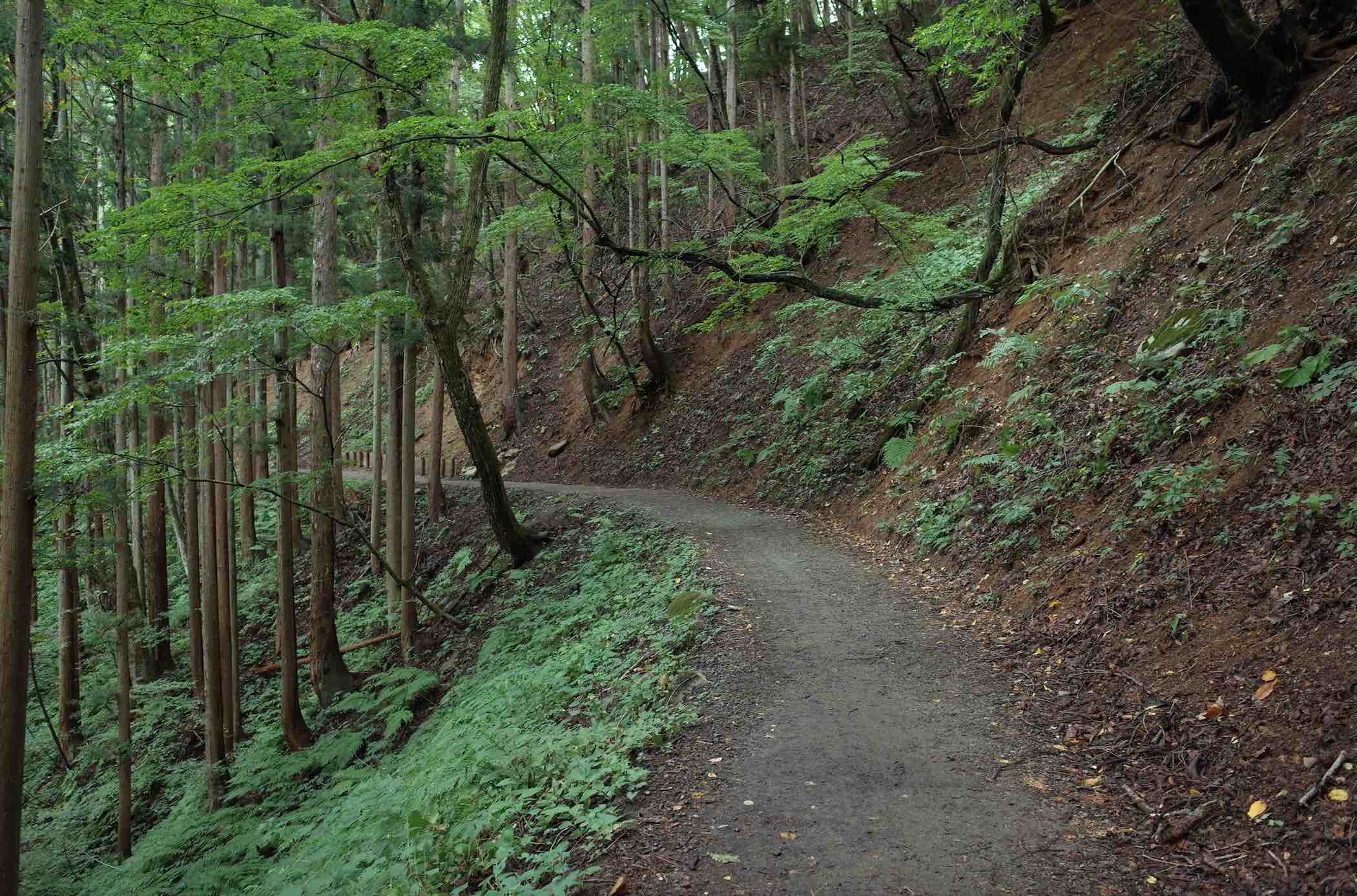
Photo: @audyscala
Natural disasters are par for the course in Japan. Combine this with the large number of nuclear power plants in Japan, and it’s a dangerous mix (perfectly encapsulated by the Fukushima disaster of 2011).
Although this isn’t a concern for everyone, people who are trepidatious about nuclear power (including many Japanese people) make the move to Hokkaido which has a comparatively low number of plants. On occasion, they may even leave Japan altogether.
Aside from that, as we’ve said over and over, Japan is safe. On a human level, it’s really safe. But you should honestly learn some Japanese. English is not very widespread and although it’s becoming more common with younger generations, it’s still extremely limited.
It can be hard to integrate. Find some friends online via Facebook groups, do your research, and try to meet up based on common interests. It’s all about perseverance.
Japan is safe to live in, but it can be tough sometimes. Especially if you’re by yourself.

A new country, a new contract, a new piece of plastic – booooring. Instead, buy an eSIM!
An eSIM works just like an app: you buy it, you download it, and BOOM! You’re connected the minute you land. It’s that easy.
Is your phone eSIM ready? Read about how e-Sims work or click below to see one of the top eSIM providers on the market and ditch the plastic.
Grab an eSIM!Is it safe to rent an Airbnb in Japan?
Renting an Airbnb in Japan is a great idea. And it’s perfectly safe, as long as you read the reviews. Staying at an Airbnb during your trip will also open up new possibilities and options to experience the country. The local hosts are known to take great care of their guests and give the absolute best recommendations of what to do and what to see. Local knowledge always goes a long way, so be sure to reach out to your hosts if you’re unsure about how to fill up your Japan itinerary!
On top of that, you’ll stay safe with the reliable Airbnb booking system. Both hosts and guests can rate each other which creates a very respectful and trustworthy interaction.
Is Japan LGBTQ+ friendly?
While most locals, especially the older generation, still have a conservative mindset, members of the LGBTQ+ community are unlikely to get into any sort of trouble. That is, of course, if you don’t push boundaries and stay respectful of the local culture.
Public affection isn’t a big thing in any relationship so adapting to that is the best thing to do. Popular cities like Tokyo or Kyoko offer a bit of a gay nightlife, but it’s not overwhelming. However, you’ll be welcomed with open arms.
Japan is simply a great country to visit, no matter what kind of traveller you are.
FAQ about Staying Safe in Japan
Here are some quick answers to common questions about safety in Japan.
So, is Japan Safe?
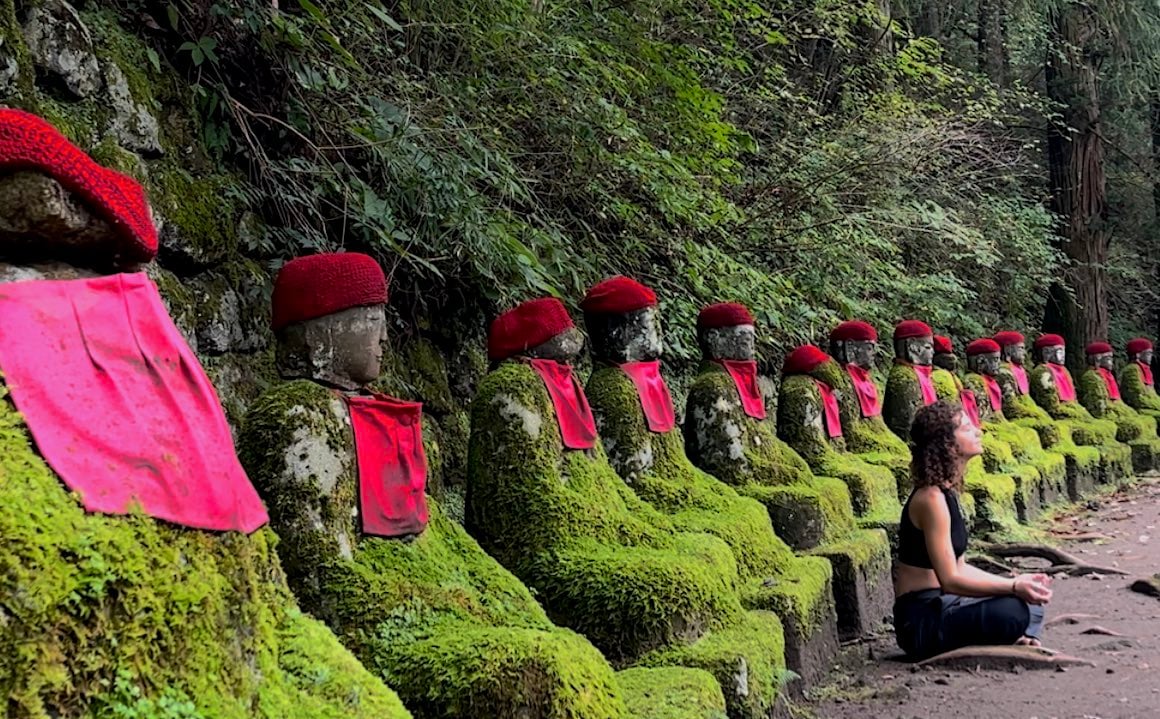
Photo: @audyscala
To conclude: Japan is a ridiculously safe country to travel. Everybody minds everybody else’s business here, people literally save seats and tables in cafes with their handbags and coats (a TOTAL no-no in so many other countries), and public transport is safe after dark.
It’s quiet, humble, and totally safe. And it’s zany, proud, and completely reckless – watch a mikoshi procession and see the madness.
Anywhere in the world, there are shades of grey and shades of weird. Not just weird, where people can get too close for comfort, or just plain freak you out, but dangerous. Although safety in Japan is pretty much a no-brainer for a tourist, things can still happen the same as anywhere.
And then, of course, away from all the human things: Mama Nature. Earthquakes are unpredictable. Japanese people live with this threat every day and still have fun. So should you.
Disclaimer: Safety conditions change all over the world on a daily basis. We do our best to advise but this info may already be out of date. Do your own research. Enjoy your travels! Some of the links in this post are affiliate links which means we earn a small commission if you purchase your insurance through this page. This costs you nothing extra and helps us keep the site going.
Made it this far?
You get 15% OFF to book a place to stay!
Offer valid exclusively for Broke Backpackers 😉



